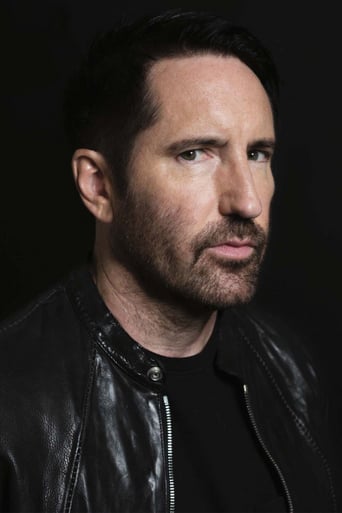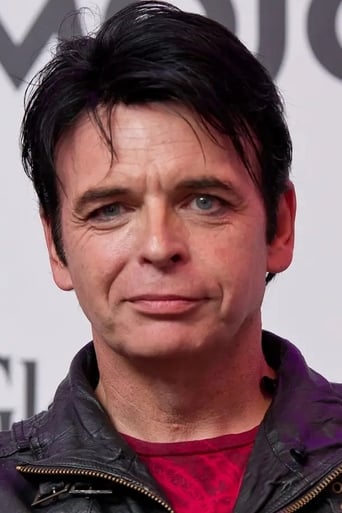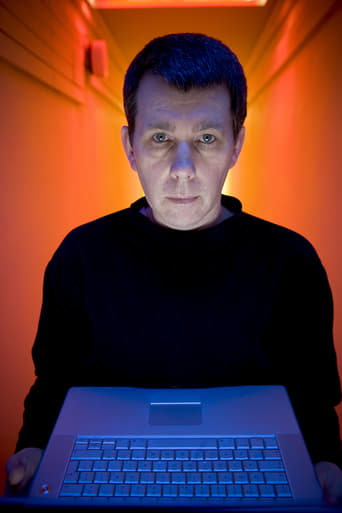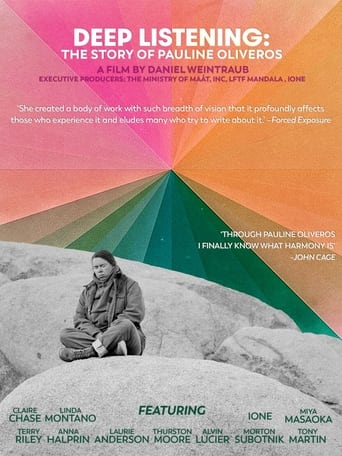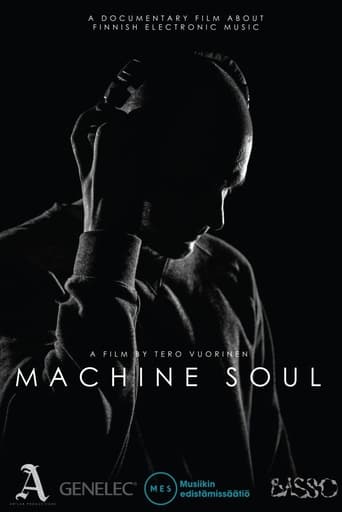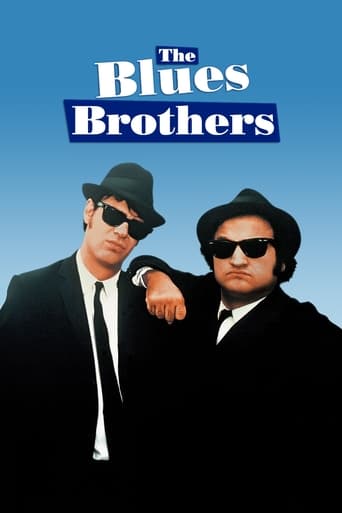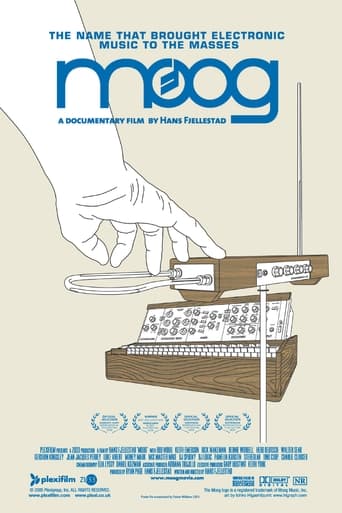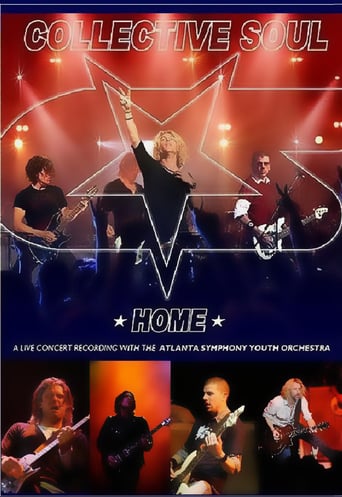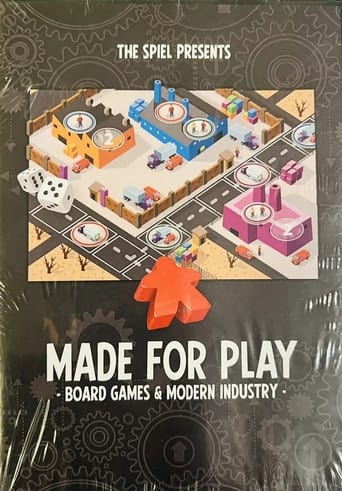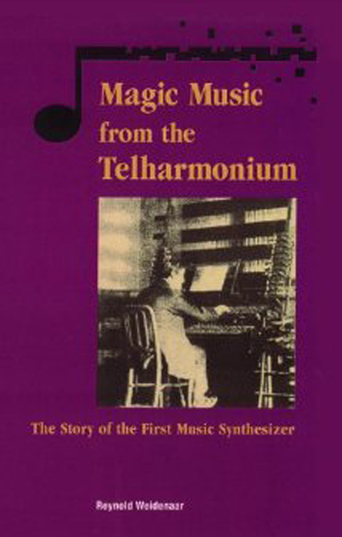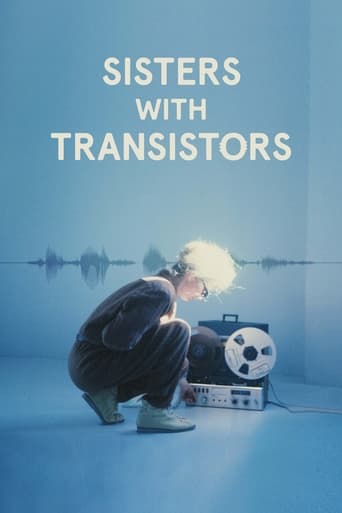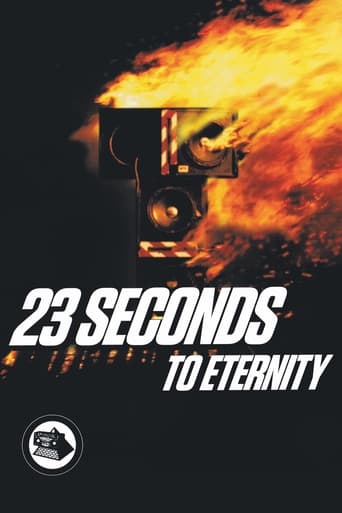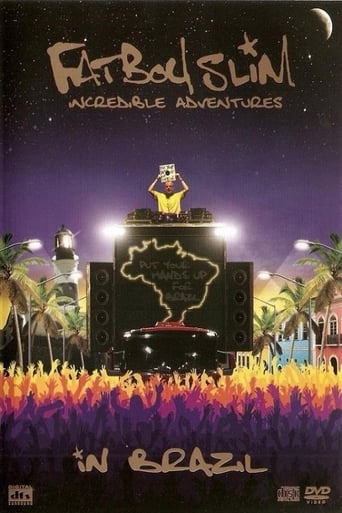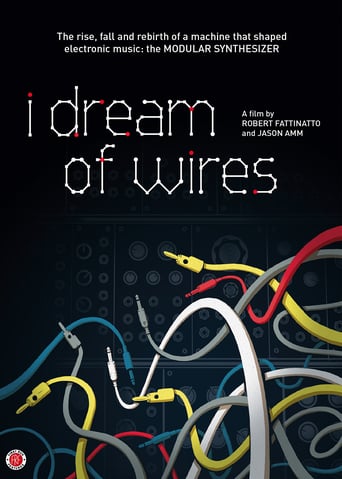

I Dream of Wires (2014)
An independent documentary film about the phenomenal resurgence of the modular synthesizer — exploring the passions, obsessions and dreams of people who have dedicated part of their lives to this esoteric electronic music machine. Inventors, musicians, and enthusiasts are interviewed about their relationship with the modular synthesizer — for many, it's an all-consuming passion.
Watch Trailer
Cast
Similar titles
Reviews
Expected more
Excellent, Without a doubt!!
It’s sentimental, ridiculously long and only occasionally funny
This movie feels like it was made purely to piss off people who want good shows
I stayed up late last night and finally watched this documentary on Netflix, an awesome look at the history of the modular synthesizer. I loved the focus on the academic origins of the modular, the East Coast (Moog, commercial) vs. West Coast (Buchla, artistic) philosophies, and the recent resurgence of modular thanks to EuroRack. I felt that a couple of things were lacking: 1) A mention of Bebe and Louis Barron's groundbreaking 1956 Forbidden Planet soundtrack, for which they created their own electronic circuits that completely avoided the use of oscillators, as part of their own school of thought, years before Buchla and Moog: "The circuit is a wild, living thing that should never be tamed. Oscillators tame the circuit and take the life and breath out of the sound." (I'm paraphrasing from a Keyboard interview) 2) They briefly mentioned softsynths, in a negative way, but completely failed to cover virtual analog hardware, as pioneered in the Nord Lead. The Nord was responsible for bringing KNOBS back to synthesizers, after the love affair with all-digital synths faded, but it was done using digital technology that faithfully reproduced analog components, with the added benefits of lower cost, higher polyphony and more control and modulation possibilities. The Nord Modular, especially its G2X version, is in my opinion the most programmable, playable and reliable synth ever made. Contrary to what they say about softsynths (this is a hardware-based softsynth), I frequently get lost for hours in programming and playing the G2X, it's immersive and endlessly fascinating, with a gorgeous sound and unlimited identities. It's the only instrument I play onstage.
For anyone actively involved in synthesizers be it modular,rack mounted,keyboards,plug ins/outs new or vintage on any level will find this doc amateurish and incomplete. Hard to believe that this film was red lighted and budgeted with such an unprofessional script and production values.There are HUGE gaping holes and flaws in the timeline of the development of synthesis.Not one mention of The ondes martenot,Mellotron, Erkki Kurenniemi - who always forgotten in these discussions, Raymond Scott, Daphne Oram,EMS synthi, Delia Derbyshire,The BBC radiophonic workshop,Kid Baltan and Tom Dissevelt and the Dutch hardware inventions/ contributions, Tod Dockstader & James Reichert and all of the soviet synths etc.Just shameful omissions that exemplify a hasty hack job created by someone's trust fund.If you have no knowledge of who Bob Moog or Don Buchla are then I suppose it is a very primitive poorly constructed primer,beyond that there is not much here for the real heads AVOID!
Mills College, 5000 MacArthur Blvd., OAKLAND, California. Not Berkeley. Why show an aerial of UC Berkeley, and then move to introducing Buchla at Mills? Pick one. But, in any case, Mills is in Oakland. If you can't get the physical location right, what else does your film get wrong?Previous reviewer has mentioned your complete lack of the British people and instruments, so I'll only support them. You have a mention of how the Rolling Stones, the Beatles, ELP, etc., had synthesizers. How did these British musicians all find synthesizers if there were not British influences? Again, if your film makes such huge omissions, what else is missing?Also, if not for Wendy Carlos, "Switched-On Bach," her score for, "A Clockwork Orange," and the popularization of electronic music, we may not have seen the proliferation of synthesizers and electronic music. But, you do her a disservice by only allowing critiques of, "Switched-On Bach." She continued to widen the vocabulary of electronic music throughout her life and remains a pioneer.Granted, you are trying to tell the story of the beginning, but your basic factual errors and omissions became distracting to this viewer and put this film's veracity into question.
Tedious and awful. Almost unwatchably boring. A bunch of old guys relishing the old days with very little to say. Visually it is 1.5 hours of still pictures of knobs, wires, and racks of electronic equipment cut with 70 year old men talking. The whole idea is how great synthesizers are and how they impacted modern music, but no modern music is played or featured, They did not or could not buy the rights to any music to make this doc prove its point. A dull, goofy, bleepy, blurpy interstitial series of synth sounds accompanies the entire thing, but when they talk about a use of the synth, they never play the actual popular music or any kind of example. This is one of the absolute worst documentaries I have ever seen, and I came into it with an appreciation and interest in the subject. This should have been shelved and never released for lack of purpose and lack of the proper resources to pull off the project. I was in shock at how incredibly dull this was.
